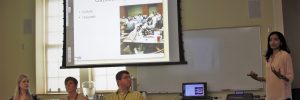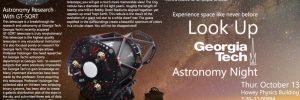Strategies for Teaching Non-Native English Speakers: A Roundtable Review

On March 30, 2017, the Writing and Communication Program’s World Englishes Committee hosted the faculty roundtable “Instructing Non-Native English Speakers: Practical Tools.” This event drew Georgia Tech teaching faculty and staff interested in sharing ideas and learning new strategies for better serving the needs of the diverse population of English… Continue reading


